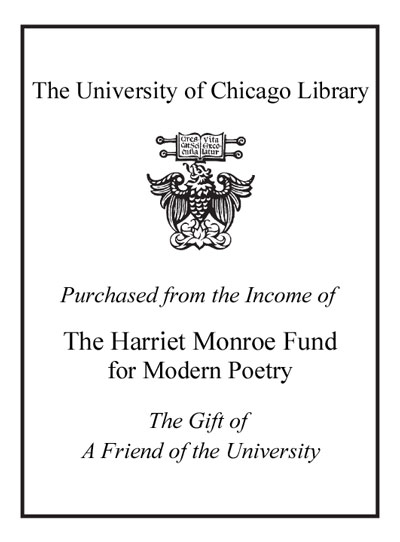PREFACE 'For the best part of a thousand years English poets have gone to school to the French', wrote Ezra Pound: 'The history of English poetic glory is a history of successful steals from the French.' Pound spoke many languages, and exaggeration was one of them, but his typically bold statement tells us something of the relationship between French- and English-language poetry from the age of Chaucer to the age of Pound and Eliot and beyond. Languages are not nations, and thanks to translation they have no borders. From the earliest days, when Chaucer was looking across the Channel for his motifs and his techniques, to the French Romantics and Symbolists of the nineteenth century and the Surrealists of the twentieth, France has given the world an anthology of models and inspirations. Louise Labe, du Bellay, Ronsard, Hugo, Verlaine, Rimbaud, Mallarme, Laforgue, Aragon, Eluard, and countless other French poets have changed not just their own national traditions but those of other cultures. This anthology presents a selection of French poems over nine centuries, starting with Marie de France and finishing with Valerie Rouzeau. Along the way it introduces the reader to a range of forms, from the ballad and sonnet, by way of the prose poem and free verse, to the experimental techniques of the twentieth and twenty-first centuries. It gives due prominence, too, to women poets and to writers from what is known as 'francophonie': French-language cultures which, whether through colonization or more benign forms of cultural affiliation, express themselves in the language of Racine and Baudelaire. But they also change that language, extending and enriching it, as we see in the work, notably, of Aime Cesaire and Leopold Sedar Senghor, poets who were also politicians and who played important roles in their countries' post-colonial history. While the poets tell their own story, the translators too are representative of their art. There are many kinds of translation: the faithful translation (but faithful to what? faithful to whom?), the free translation (free from what? according to what rules?), the version, the adaptation, and the translation so removed from its original that we think it may as well declare itself a poem and have done with it. I have included translations by poets such as Marianne Moore, John Ashbery, Marilyn Hacker, Beverley Bie Brahic and Pound himself, but also translators, such as Richard Sieburth, Martin Sorrell, Mary Ann Caws and Norman Shapiro, whose work over the years has done much to keep open the lines of communication between today's English-language reader and the poets of the past. There are occasional surprising meetings, such as F. Scott Fitzgerald's version of Rimbaud's ' Voyelles ', Wallace Stevens's Le´on-Paul Fargue, or G. K. Chesterton's du Bellay, which remind us that, for some, translation is a lifetime's travel, and for others a unique, one-off foray into a foreign land. To say there are love poems, both requited and unrequited, poems about life and death, war, triumph and defeat, is not to make a statement either about French poetry or about its French ness . But French poetry is among the most influential in the Western world because it has been so responsive and so curious about the literatures of others. Since the medieval period, French poets have been great cosmopolitans, and the import-export of translation has ensured that they themselves 'borrowed' as much as they lent to others. French renaissance poets read the classics, but also looked to far-off countries for their inspiration, while the nineteenth-century Romantics looked across to England or to Germany and Spain. America and American literature (not just Britain and British) have always been part of this exchange, and the French have always had a special affinity with America and its literature. After all, Baudelaire claimed to have learned English to translate Poe, while the Symbolists of the 1880s and 1890s read and translated Whitman, using him to justify their own experiments with 'free verse'. Poetry is an international language, but we rely on translation to make it so. --Patrick McGuinness Excerpted from French Poetry All rights reserved by the original copyright owners. Excerpts are provided for display purposes only and may not be reproduced, reprinted or distributed without the written permission of the publisher.

